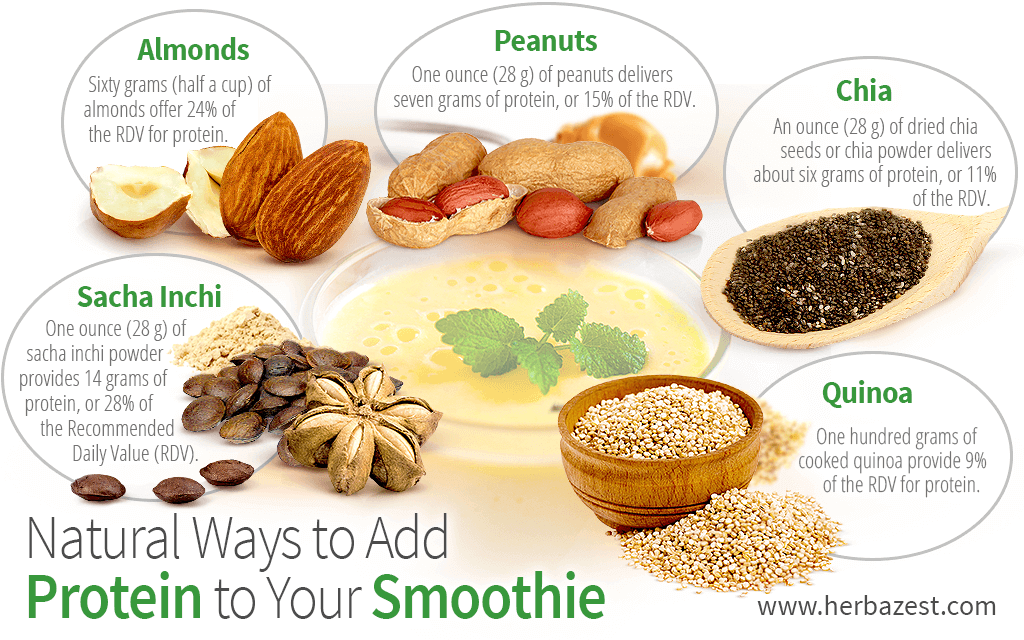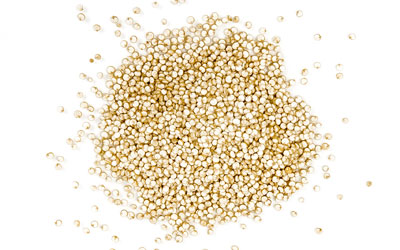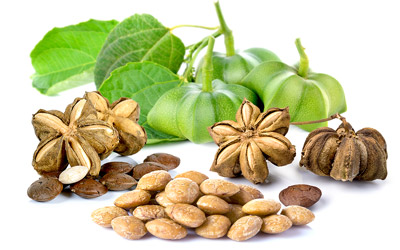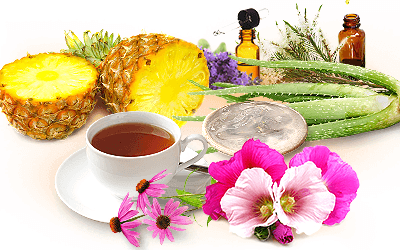One of the easiest ways to incorporate protein into your diet is by adding it to smoothies. They can be a quick fix at the end of your workday, a nutritious breakfast to go, or even a whole meal replacement, depending on the ingredients you use.
The recommended daily allowance (RDA) of 50 grams of protein is crucial for your body so that it can repair cells and produce new ones. Protein is also important for growth and development in children, teens, and pregnant women.
The best vegetable sources of protein are nuts, seeds, and grains. Here are some of the best protein-rich plants to add to your smoothies.
Sacha Inchi
Little known until recently, this Amazonian seed has shown to be the best known vegetable source of protein. One ounce (28 g) of sacha inchi powder provides 14 grams of protein, which means a whopping 28% of the daily value (DV), easy to digest and essential for maintaining and building muscle mass.
Moreover, sacha inchi is rich in omega-3 fatty acids, which help regulate cholesterol levels and lower blood pressure. Sacha inchi powder has a tasty, mildly nutty flavor that blends perfectly with all kinds of fruits and vegetables in smoothies.
Almonds
Almonds are one of the best sources of protein. Only 60 grams (half a cup) of almonds offer 24% DV for protein. Almonds are also among the least caloric nuts and have high levels of antioxidants, especially vitamin E. Almonds can be added to smoothies whole, raw, roasted, or as vegetable milk, although the last form won't provide as much fiber.
Peanuts
Peanuts are really legumes, like beans, but are considered as nuts for nutritional purposes. They were first acknowledged as a protein source during World War II, when peanut butter emerged as a nutrient-rich supplement. One ounce (28 g) of peanuts delivers 7 grams of protein, or 15% DV.
Peanuts have gotten a bad rap as a fatty food, but the truth is that at least 50% of their content is monounsaturated fat, the healthy kind also found in olive oil and avocados. Peanuts can be added to smoothies raw and unsalted, or in their creamy butter form.
Chia
Chia seeds have a great nutritional value. An ounce (28 g) of dried chia seeds or chia powder delivers about 6 grams of protein, or 11% DV. In addition, they have the highest concentration of omega 3 and omega 6 fatty acids among seeds and nuts, providing 82% and 50% DV, respectively. Chia seeds are also rich in magnesium (27% DV), phosphorus (24% DV), and calcium (22% DV).
It is recommendable to soak chia seeds for at least half an hour before adding them to a smoothie so that they can double in volume and have a more satiating effect.
Quinoa
The increasing popularity of this Andean grain is based on its many health benefits. Quinoa contains the highest levels of essential amino acids of any other grain. 100 grams of cooked quinoa provide 9% DV for protein.
Quinoa also offers high amounts of manganese (32% DV) as well as magnesium (16% DV) and phosphorus (15% DV). All these minerals play a key role in calcium absorption, protein synthesis, and the formation of bones and teeth. Quinoa can be added to smoothies as a powder, flakes, or previously cooked.
These healthy options of plant-based protein will naturally enrich your smoothies, provide you with lots of energy, and improve your overall health.
Sources
- Current Sports Medicine Reports, Exercise and the Institute of Medicine recommendations for nutrition, 2005
- Dietary Reference Intakes for Energy, Carbohydrate, Fiber, Fat, Fatty Acids, Cholesterol, Protein, and Amino Acids, Chapter 1
- Food and Nutrition Bulletin, Causes of Vitamin B12 and Folate Deficiency, 2008
- Genetics Home Reference, What are proteins and what do they do?
- International Food Information Council, Protein and Health
- The Peanut Institute, Health and Nutrition Research, Protective Nutrients
- Whole Grains Council, Whole Grain Protein Power!|Quinoa – March Grain of the Month
- USDA Nutrient Database
- American Journal of Clinical Nutrition, Plant proteins in relation to human protein and amino acid nutrition, 1994












